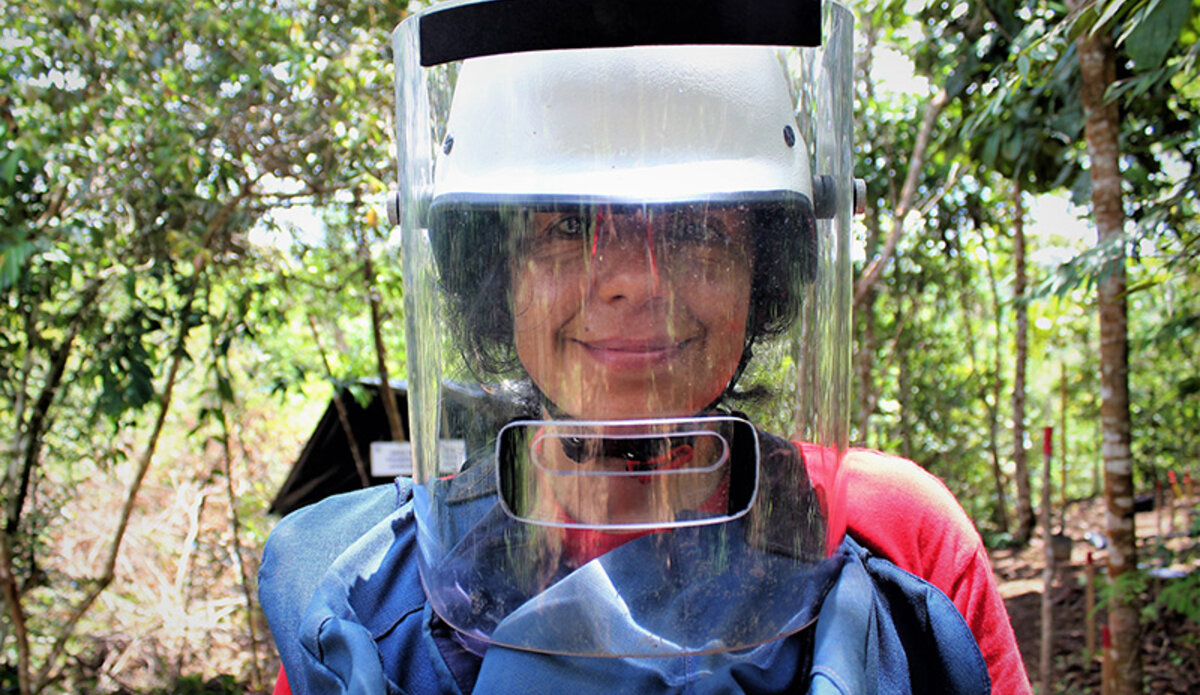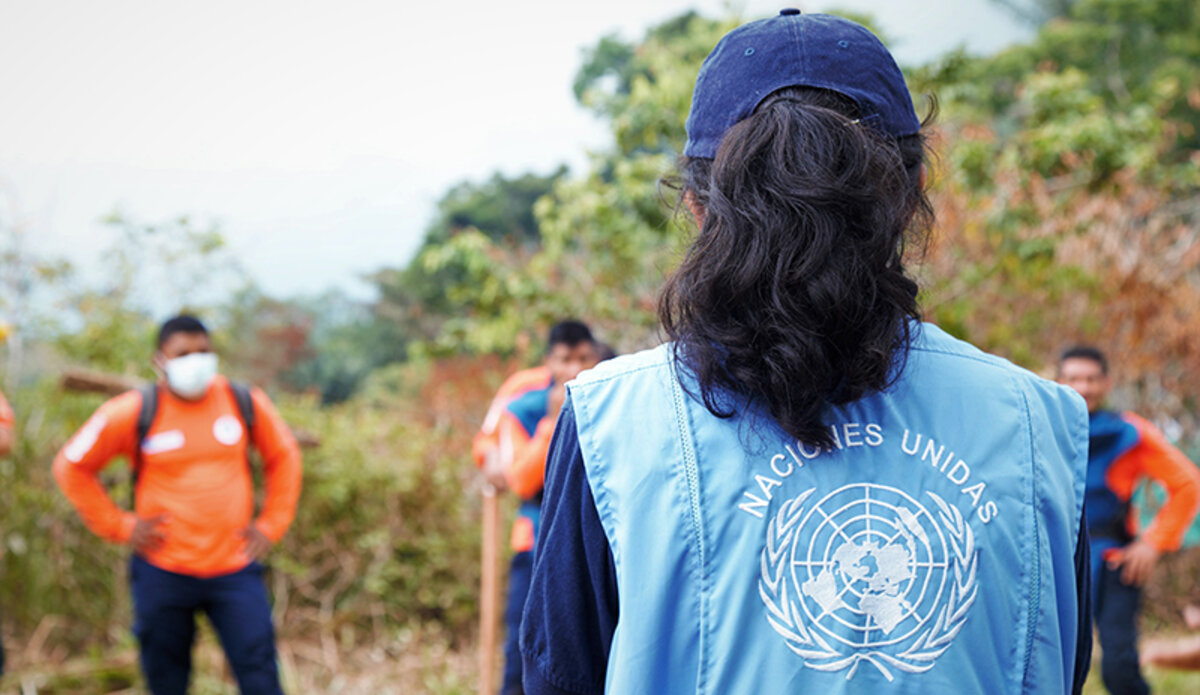The distances are long, the sun is inclement and strong in the department of Caquetá, and the terrain that must be covered to evaluate the training or to monitor the areas of humanitarian demining operations carried out by former FARC-EP combatants, is rugged. But this does not dissuade Elena Gómez. She cherishes and enjoys her job as a monitoring assistant for UNMAS in Colombia.
Since July 2019, Elena is one of many women working for the UNMAS team in Colombia. Indeed, at present, this team is 59% female. A balanced team, something not easy to achieve in this sector.
As a member of the UNMAS Quality Management and Operations team, Elena's mission is to evaluate the training and monitor the quality of the humanitarian demining operations performed by HUMANICEMOS DH, the first mine action organization in the world formed and led by former combatants. HUMANICEMOS DH is a great example of the reintegration of former combatants, which emerged after the 2016 Peace Agreement.
Elena, once a week, visits the HUMANICEMOS DH Regional Base located in La Montañita, Caquetá, where she verifies that the training received by former combatants from UNMAS meets the national standards.
“Since October, when HUMANICEMOS DH began its humanitarian demining efforts, we also began to monitor the areas of operations they established. First, we review their reports, coordinates, the information they collect in the communities, and then, with all of that, we go out to the field to verify that the routes and markings are correct,” Elena explains, describing the meticulous technical duties she conducts.
All of the findings of the monitoring teams are reported to the National Mine Action Centre: the Office of the High Commissioner for Peace (OACP) - Descontamina Colombia, the authority which approves or demands changes to operations. “We emphasize that our work is really an accompaniment because, in addition to being rigorous in evaluations, we seek to help them understand the reasons why we make a report; we talk with the organization's leaders about how the project can improve, and if they need support, we offer it to them”, she adds.
Elena ventured into the mine action sector three years ago, as a Community Liaison Officer in the civil humanitarian demining organization Norwegian Popular Aid (APN), and since then she noticed the changes that the sector was experiencing, with more women occupying managerial, strategic, and above all, operational positions.
UNMAS has emphasized the need for gender equality for years and published the 3rd updated edition of the United Nations Gender Guidelines for Mine Action Programmes in 2019.
“My message to other women is: if you want to enter this sector, which apparently belongs to men, do not feel intimidated. The key is to trust your capabilities and not to give up without trying,” Elena concludes, while preparing her backpack, her report formats, and her cap. She is preparing to undertake a new visit to the mountains of the region the next day, this time to verify the beginning of the works to destroy explosive ordnance by HUMANICEMOS DH. With her labor, Elena is opening up the paths for other women in the mine action sector, while contributing to peacebuilding in Colombia.



